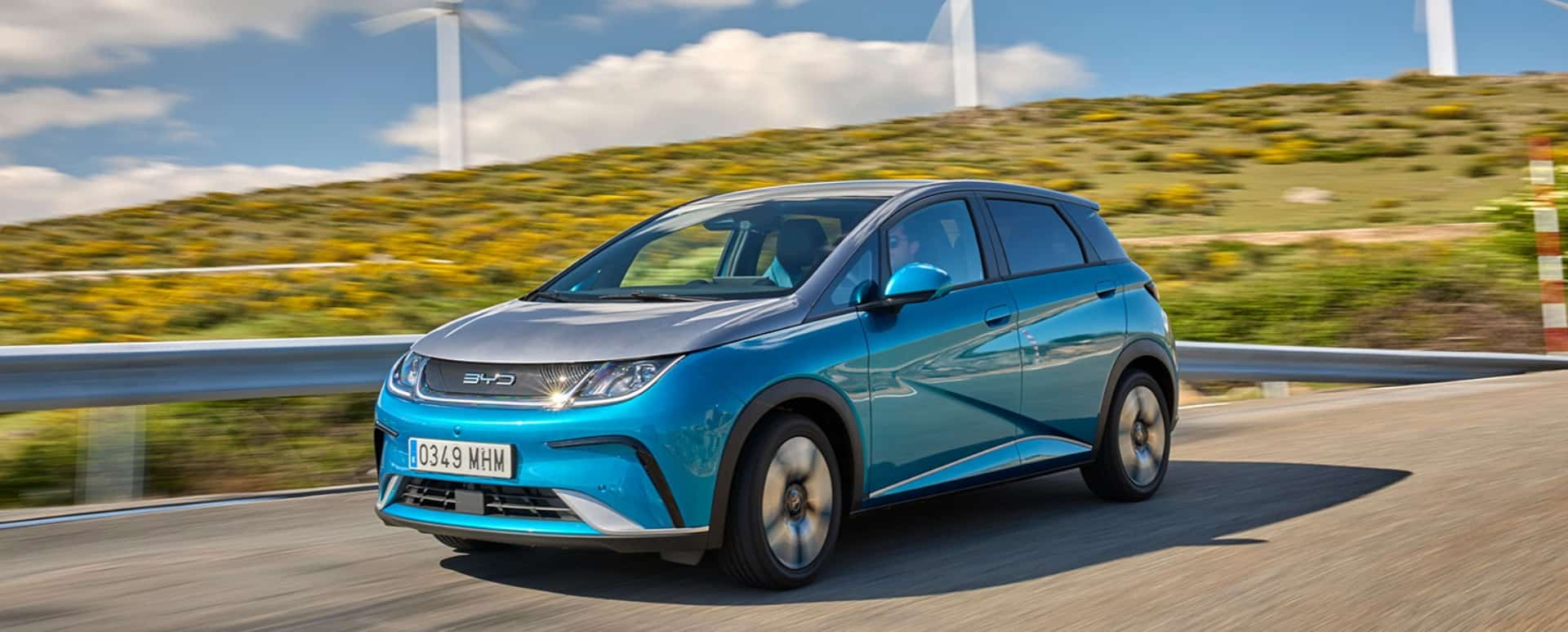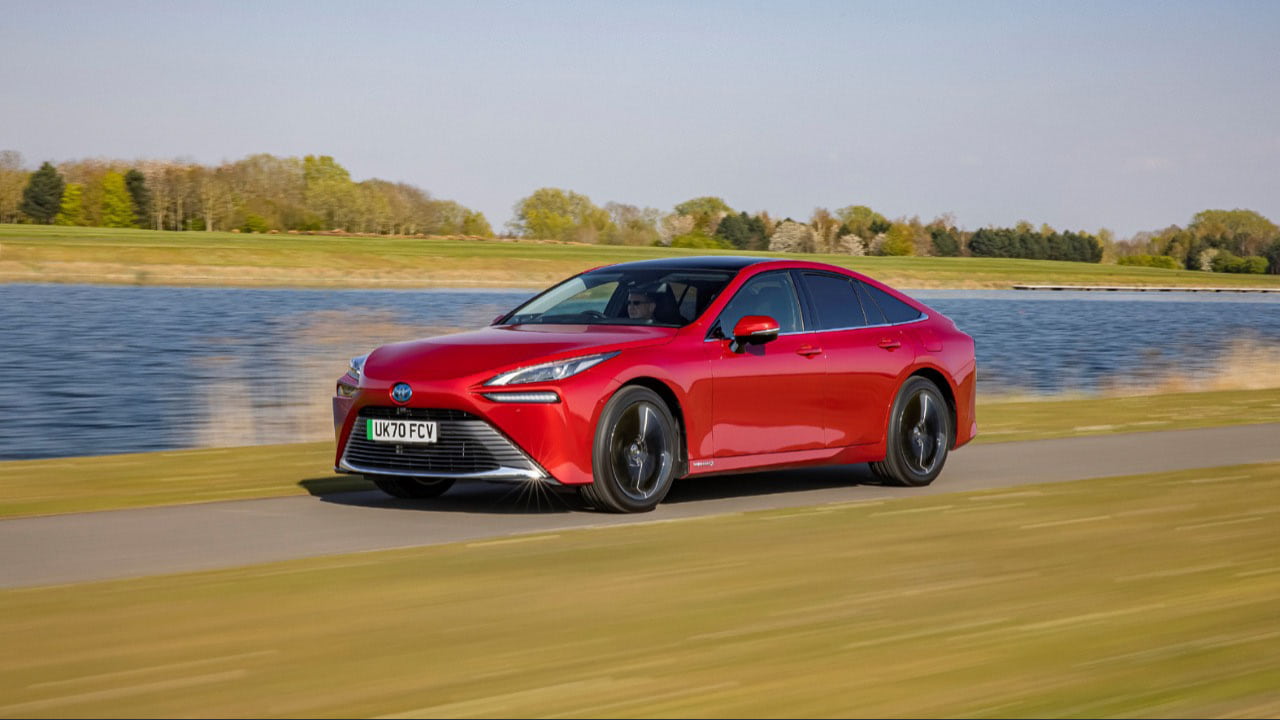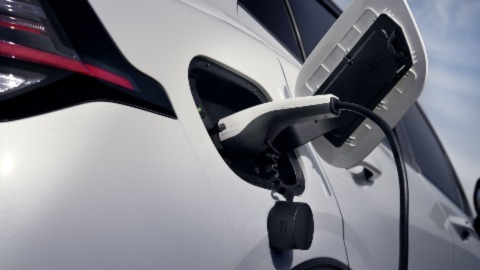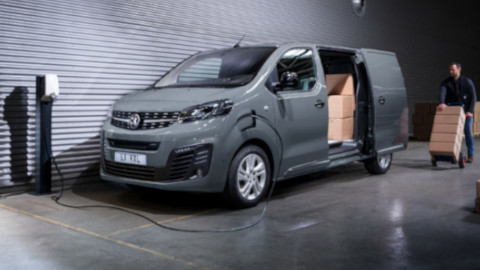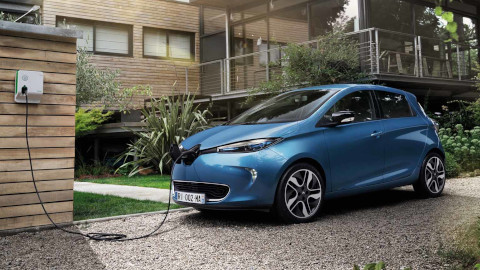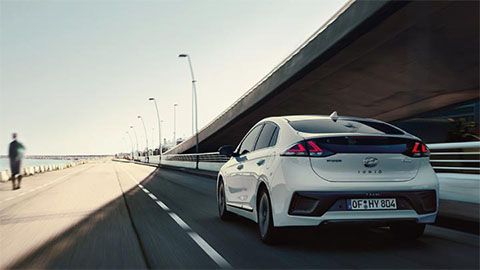The difference between electric cars and hydrogen vehicles
Electric cars and hydrogen vehicles are becoming evermore popular in the UK. The media sells them as greener options to petrol and diesel cars but do you know how they work and what's the main difference between electric cars and hydrogen vehicles?
This article explores how each vehicle works, their benefits, disadvantages and explains if they're indeed an alternative to combustion vehicles.
Contents
- How does an electric car work?
- How does a hydrogen car work?
- Benefits of an electric car
- Disadvantages of an electric car
- Benefits of a hydrogen car
- Disadvantages of an hydrogen car
How does an electric car work?
An electric car is a vehicle that uses electricity to run the motors. Unlike a traditional car which burns petrol or diesel to work the engine, electric vehicles use a battery to power the motor.
They use the same energy as mains electricity, and can be charged at any of the thousands of public charging stations in the UK.
How does a hydrogen car work?
Another alternative to fossil fuel is hydrogen. These vehicles use hydrogen as fuel to operate a car. The hydrogen that is stored in the car reacts with oxygen to make electricity. The electricity created by this reaction is what powers the motor. The only emission is pure water.
Benefits of an electric car
There are many benefits when you choose to switch from a petrol car to an electric one. Here are some of the benefits you may gain.
Electric vehicles are eco-friendly
Unlike vehicles with a traditional engine, electric vehicles don't produce any emissions. This is a great step towards achieving the target of net-zero CO2 emissions by 2050 that has been set by climate change scientists in order to reduce the effects of climate change.
EVs also help reduce noise pollution because they run on near silent electric motors rather than noisy internal combustion engines.
Electric cars offer good value for money
The lower running costs are attractive to those looking to upgrade to an electric car. According to the government, it costs 11 pence per mile to run an EV, on average.
Considering current prices, an EV could save you a substantial amount of money on running costs when compared with petrol cars. The resale value is also something to consider.
Electric cars hold 49 percent of their value on average. This means that they depreciate around 9 percent less than petrol vehicles. EVs are also exempt from vehicle tax until April 2025, making them cheaper to run now.
How long do electric cars take to charge?
Who says electric cars don’t travel the same distance as petrol cars? On average electric cars travel between 190 and 280 miles on one charge, meaning you should be able to travel from London to Leeds on a single charge.
The estimated battery life of an EV ranges from 15 to 20 years, outliving petrol vehicles. Charging the car should also be an easy task. It takes between 30 minutes to 48 hours to charge them, depending on what type of charger you're using.
Disadvantages of an electric car
It’s important to highlight that there are some disadvantages to switching to an electric vehicle.
The temperature can affect the battery performance
One of the biggest disadvantages to switching to an electric vehicle is that the battery performance is subjected to several factors you may not be able to control, such as the weather.
You probably have experienced this with other battery controlled devices, like mobile phones, when there’s a drastic drop in temperature. The battery operated cars are no different. They could lose performance in colder weathers.
On the other hand, the car could lose performance on situations you can control. Your driving style and the air conditioning usage will affect the battery life directly. If you don’t need to use the car for an extended period of time, if you go away on holiday for example, you could come home to a drained battery.
Recharging time
As previously mentioned, an electric car could take from 30 minutes to 48 hours to recharge. That’s a long time to fit into busy schedules and will add up to your to-do list in the long run. It will also require that the usage of the car is planned ahead, not to be left without charge when you need it the most.
Production of some electric cars can be harmful to the environment
If your main goal is to become greener by switching to an electric car, there is one core thing to consider.
Even though electric vehicle produce no CO2 emissions when compared to a combustion powered engine, the production of the battery used in the car (lithium battery) can be damaging to the environment. The benefits outweigh this over the lifetime of the vehicle, but it's worth knowing.
Benefits of a hydrogen car
Some of the advantages of hydrogen cars aren’t so obvious. Here are some of the benefits you may gain if you choose to switch to hydrogen vehicles.
They are the cleanest vehicles available on the market
At this point, it’s no secret that cars contribute to the pollution causing some of the environment troubles we’ve been facing recently. Petrol cars produce over 2.3kg of CO2 per litre of fuel burnt on average. That contributes to a large amount of the carbon-dioxide emissions produced every year.
Hydrogen cars are the cleanest vehicles on the market because they only emit water vapour. This is the main advantage to those who prioritise the environment wellbeing.
Fast Charging Vehicles
One of the biggest concerns when it comes to switching to a low-emission vehicle is how long it’s going to take to fully charge it. Hydrogen vehicles don’t need to be recharged like electric cars.
In this aspect, they are much closer to petrol cars that only need refuelling the tanks at public hydrogen fuel stations. It can take up to five minutes to refuel the hydrogen tank against the two minutes it takes to refuel a petrol car.
Range
On average, hydrogen vehicles can reach up to 400 miles on one full tank. This is great considering how close it is to the 500 miles petrol vehicles can achieve on average.
There are currently two models of hydrogen cars available in the UK: Toyota Mirai Saloon and the Hyundai Nexo SUV.
Disadvantages of a hydrogen car
It’s important to keep in mind that there are disadvantages to switching to hydrogen vehicles as well. Here are some of them to consider.
Not many refuelling stations
Although hydrogen vehicles are considerably quicker to refuel than electric cars, there are fewer refuelling stations in the UK than charging stations for EVs.
The discrepancy goes from thousands of charging stations to fewer than 100 refuelling stations. This could make your life difficult if you don’t live near one and will make a trip to get more fuel a lot harder.
Hydrogen cars use flammable fuel
Hydrogen is highly flammable and could cause an accident if mishandled and not stored properly. However, petrol is also flammable too, so it's not the end of the world if refuelling is handled correctly.
More expensive to buy and maintain
Hydrogen cars are expensive to produce. They need platinum and iridium to produce the fuel cells which makes the final product more expensive to the public. The up-keep of the car is also more expensive than electric and petrol cars. The cost for a unit of power from hydrogen is higher than other sources of fuel or energy.
Thinking about switching to an electric vehicle?
You can find everything you need to know about electric vehicles at Evans Halshaw blog.
If you’re ready to take the step and switch to an electric car and would like to book a viewing or a test drive, get in touch with your local dealership who will book a time that best accommodates your schedule.
Prices correct at time of publishing and may be subject to change.

